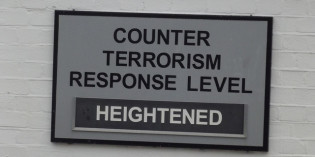Author Archive: Democratic Audit UK

Governments who push popular climate policies can be punished at the ballot box by local and vocal minorities
While the majority of the public typically supports environmental policies, if the costs fall on local groups with projects in their backyards, they often resist. In new research that uses Ontario, Canada as a case study, Leah C. Stokes examines how small groups are able to mobilise politically to oppose the location of new wind […]

The US stands as a cautionary tale for what happens when a media system is dominated by market values
While America’s media system is atypical, understanding its weaknesses may offer important implications for the future of public media like the BBC. Victor Pickard discusses the structural problems facing the American media and the corporate libertarian ideology that holds them in place. He argues that until corporate libertarianism is dismantled, it is difficult to achieve […]

Democratic revival can come from devolved democracy
The British state is being dramatically restructured by the ongoing wave of devolution deals but the focus so far has been on devolving economic powers and the delivery of public services. The next step should be to devolve decisions about how local democracy is organised to the cities, regions and local authorities, to help reinvigorate […]

Militancy shines on the big screen, but democratic tactics actually won British women the vote
Dawn Langan Teele writes that although the recent film Suffragette bucks the elite perspective of the suffrage movement, any film which focusses exclusively on the militant wing ignores the key role played by the tens of thousands of non-militant suffragists. Her recent research focusses specifically on the alliance between the nascent Labour Party and the […]

Fast-tracking the Investigatory Powers Bill is undesirable and unnecessary
Following the Paris attacks, Lord Carlile QC has called for the draft Investigatory Powers Bill to be expedited, so that it becomes law by the end of this year, rather than by December 2016. Natasha Simonsen and Cian Murphy argue that this would be a mistake, in part because existing flaws in the investigatory powers law […]

Without an agreement between the party leaders there is nothing further that Britain can do for Syria
The recent attacks on Beruit, Paris and a Russian airliner flying over the Sinai desert indicate ISIS is growing bolder and the question of Britain’s response has naturally returned to the fore. But James Strong argues that the latest international attack will change nothing about the politics of British policy in Syria due to the […]

By abandoning ideology for short term pragmatism both left and right are trivialising important constitutional questions
Although Tax Credit changes were accepted in the House of Commons, the failure of the Lords to approve this motion has created some interesting paradoxes. Sagar S Deva and Christopher Kirkland write that rather than suggesting politically-motivated and short-termist changes to affect the passage of legislation, a longer term appreciation of proposed changes is required […]

Fewer and older: Consequences of the decline in party membership in the UK
Recent years have seen an increase in membership of some of the smaller parties but this has not compensated for the overall decline in party membership across the UK. Andrew Defty considers the implications of this, from the reduced revenues to the key role played by party activists. Similar PostsEuro elections – previewing the election in […]

The BBC needs a new and robust system of governance to guarantee its independence
Most agree the BBC Trust is a busted flush, but that leaves a dilemma of finding a model of governance which provides the best guarantee for the BBC’s independence. Howard Davies writes there are two important issues to be resolved: one of process, making sure that any government decision is submitted to proper scrutiny; the other […]




 Democratic Audit's core funding is provided by the Joseph Rowntree Charitable Trust. Additional funding is provided by the London School of Economics.
Democratic Audit's core funding is provided by the Joseph Rowntree Charitable Trust. Additional funding is provided by the London School of Economics.